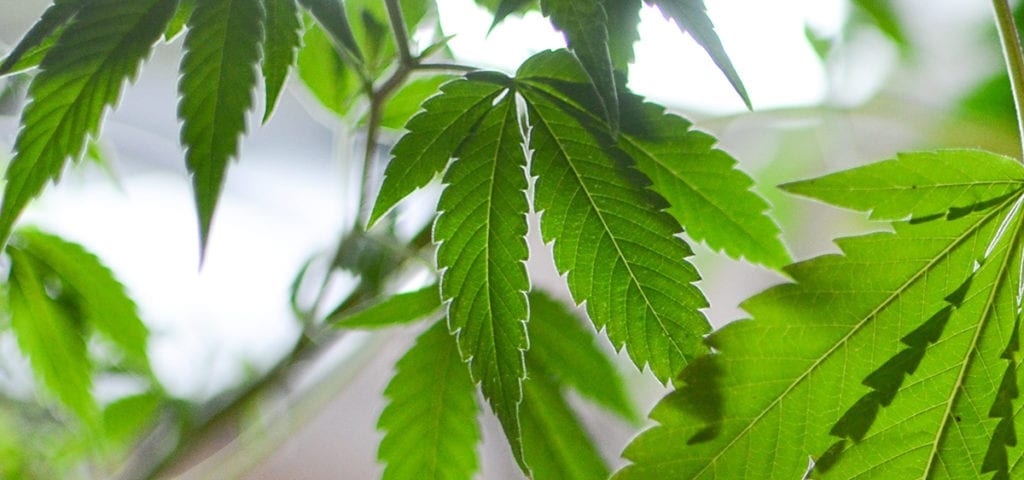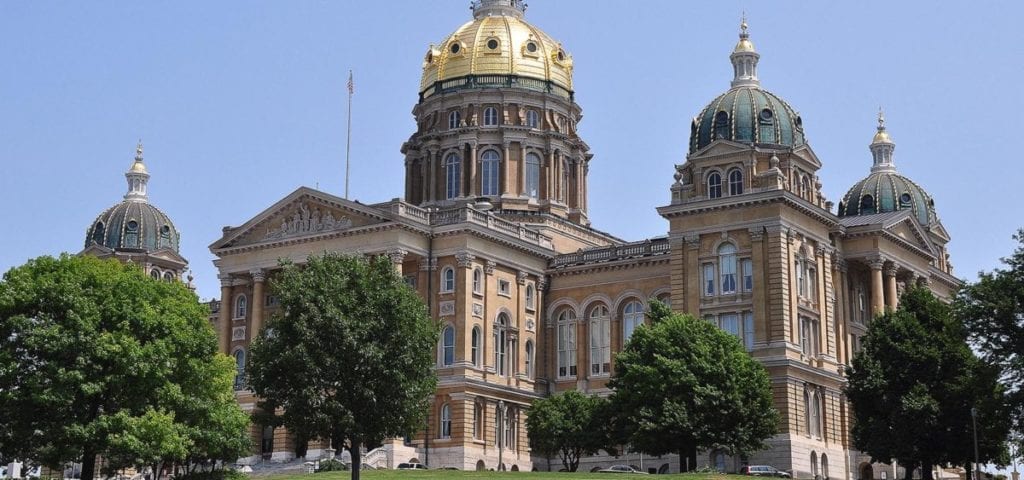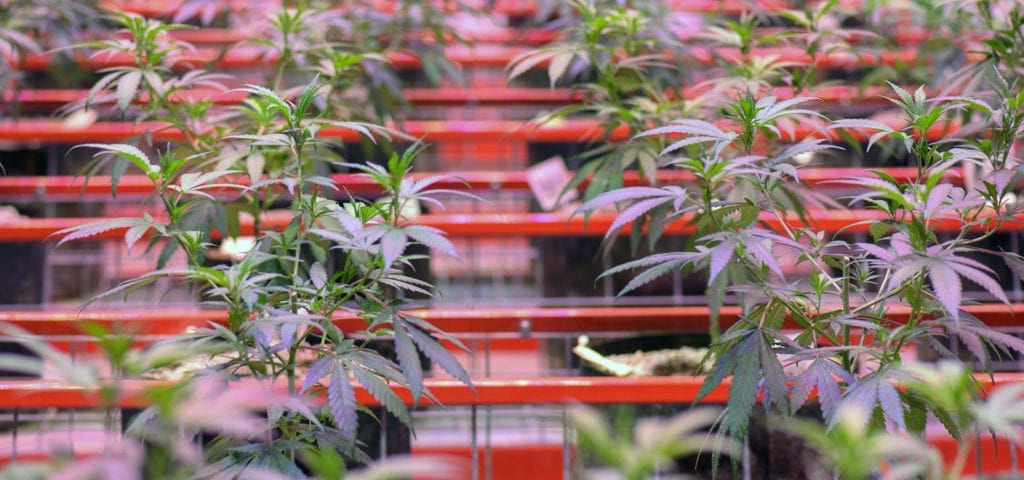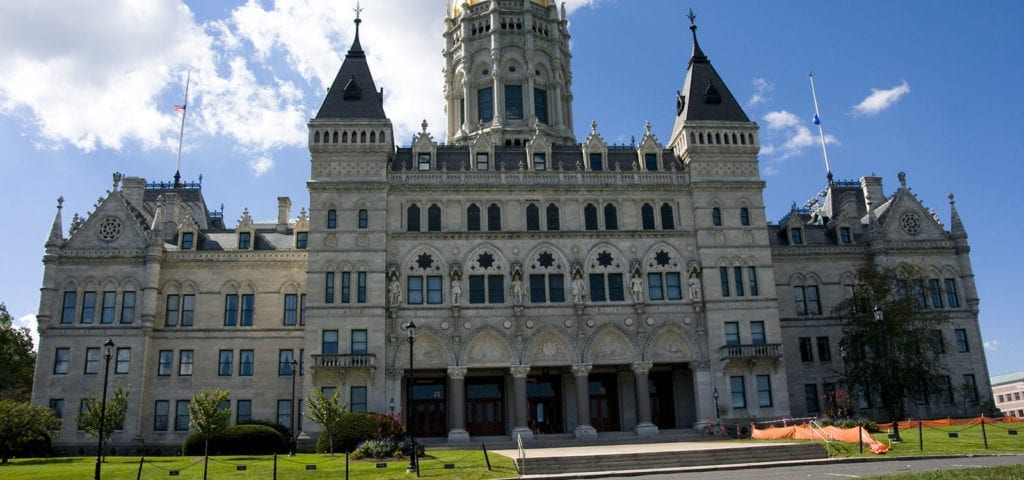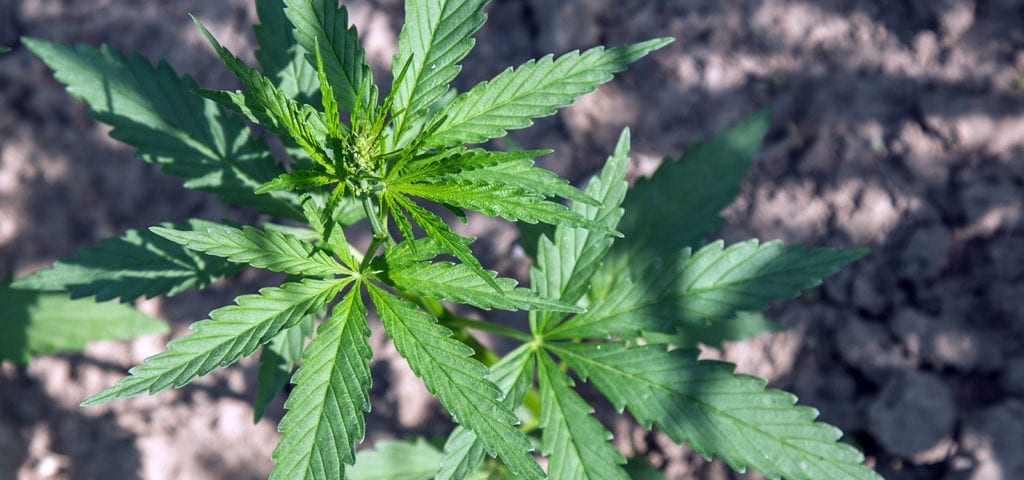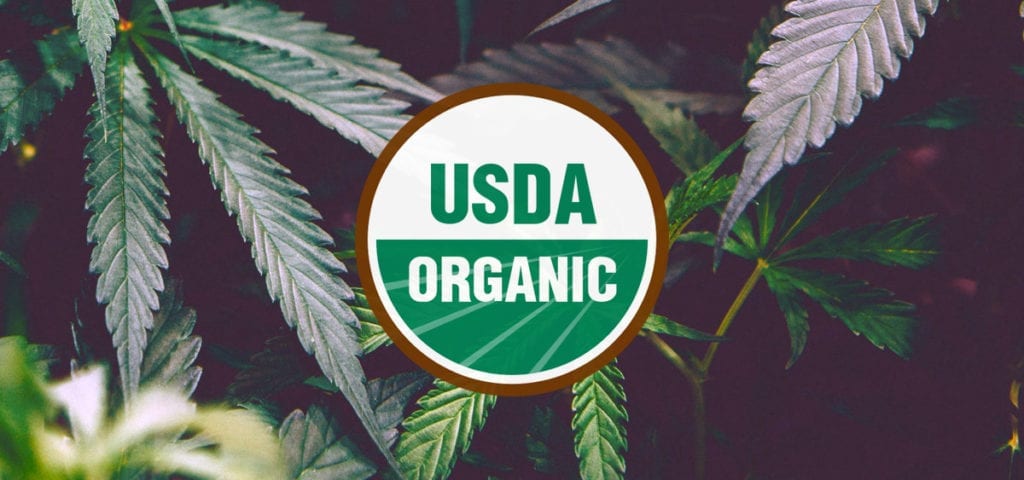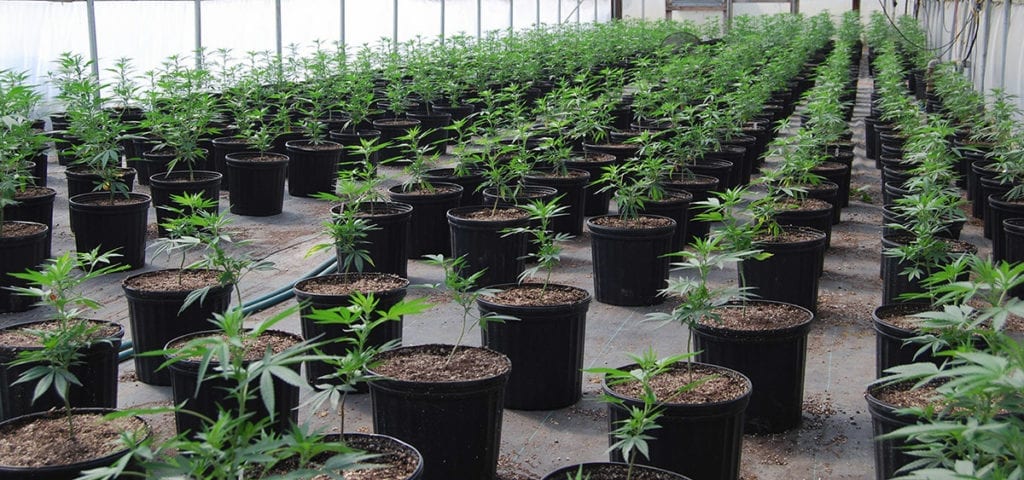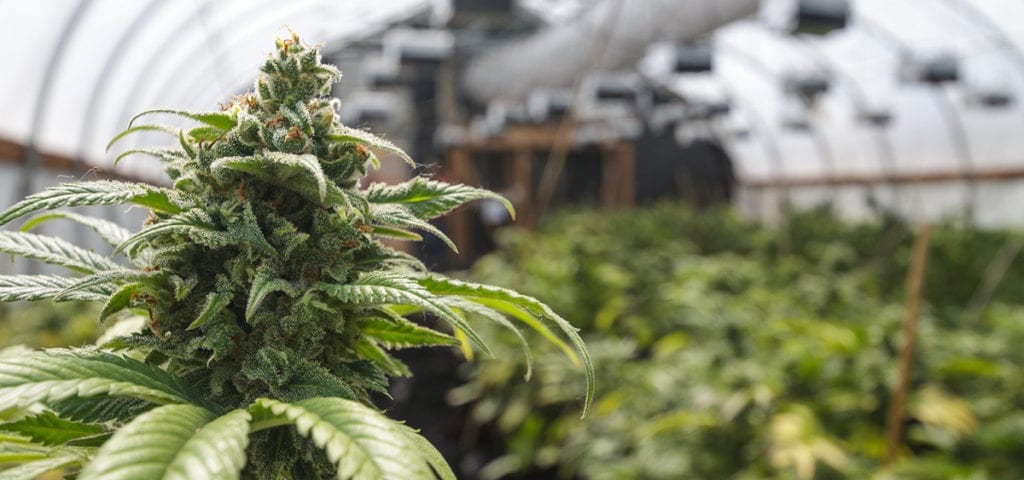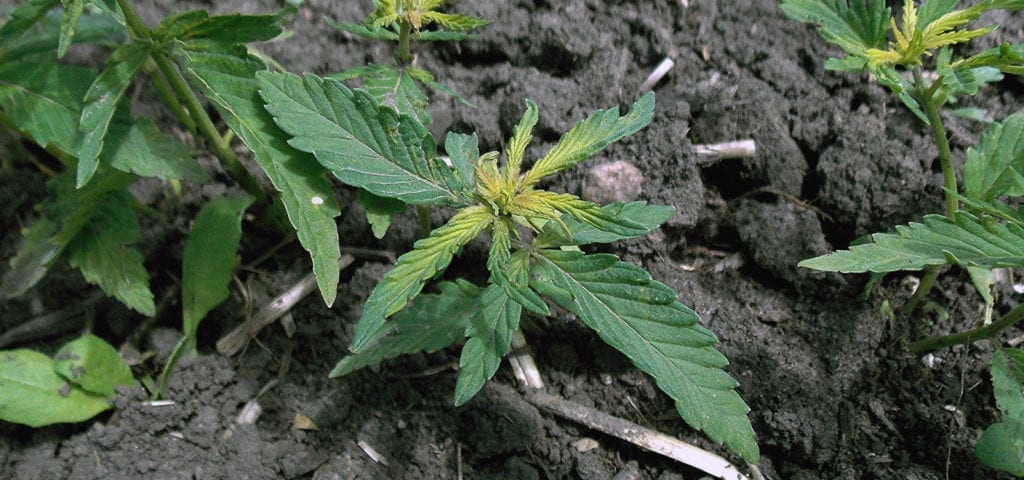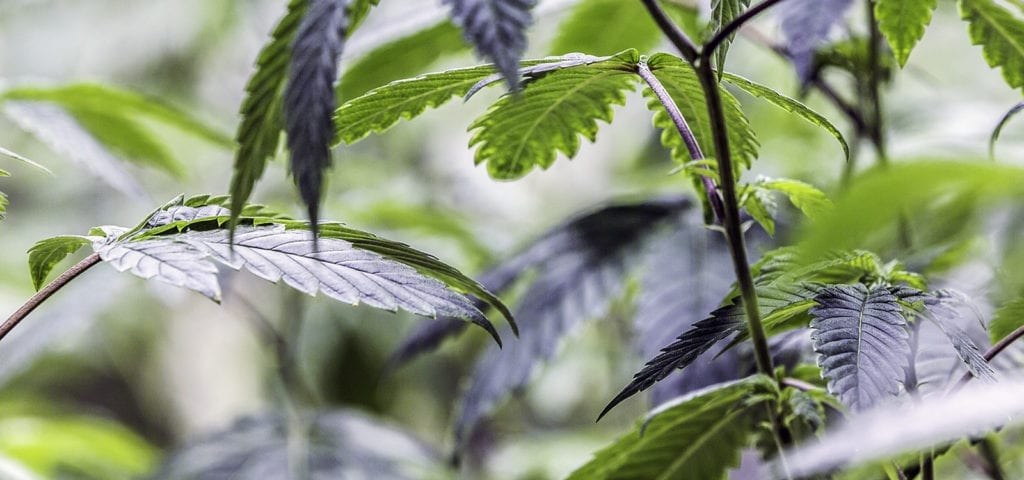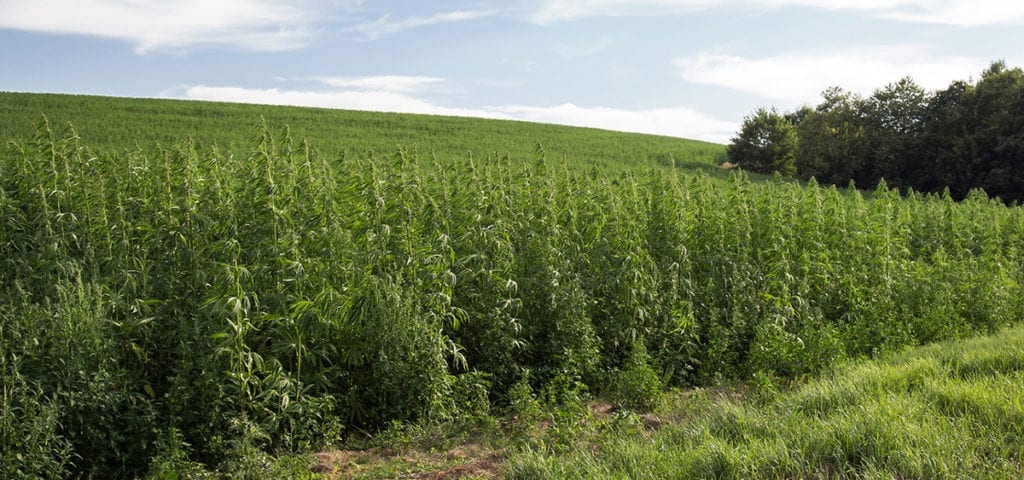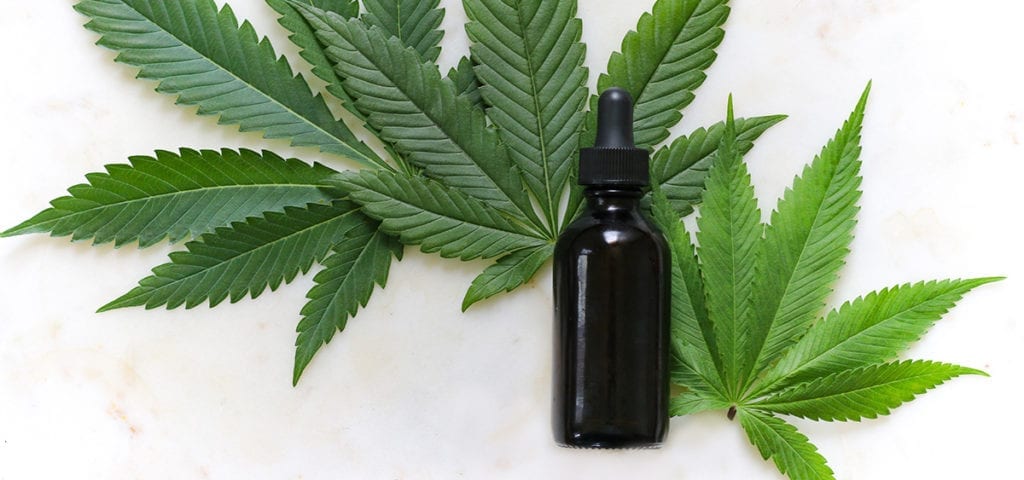Dr. Leslie Apgar and career entrepreneur/investor Gina Dubbé are co-founders of Blissiva, a Maryland-based dispensary with a scientific approach to cannabis medicine and an emphasis on providing women with cannabis-based relief; Blissiva is perhaps best known, however, for designing and manufacturing particularly approachable vape pen products.
The two recently joined TG Branfalt on the Ganjapreneur.com podcast to discuss how, as business partners, Gina and Dr. Apgar made the leap from mainstream business and medicine into the medical cannabis industry. They also share stories of overcoming industry obstacles and finding success as women entrepreneurs in cannabis, their thoughts about Maryland’s medical cannabis regulations, and more!
You can tune in to this week’s Ganjapreneur.com podcast episode via the player below or scroll further down to read a full transcript of the interview.
Listen to the podcast:
Read the transcript:
Commercial: This episode of the Ganjapreneur Podcast is made possible by 420-friendly service providers in the Ganjapreneur business directory. If you need professional help with your business, from accounting, to legal services, to consulting, marketing, payment processing, or insurance, visit Ganjapreneur.com/businesses to find service providers who specialize in helping cannabis entrepreneurs like you.
Visit the Ganjapreneur business directory today at ganjapreneur.com/businesses.
TG Branfalt: Hey there, I’m your host TG Branfalt, and thank you for listening to the Ganjapreneur.com podcast, where we try to bring you actionable information and normalize cannabis through the stories of ganjapreneurs, activists, and industry stakeholders.
Today I want to start by wishing everybody out there a happy Women’s History Month, and I’m delighted to be joined by two women on the front lines at Maryland, it’s Dr. Leslie Apgar, she’s an OB/GYN, along with her partner, serial entrepreneur, Gina Dubbé. They’re the co-founders of Maryland based Blissiva, a cannabis company focused on women’s health. Their first product, the Blissiva Balance pen, sold out in just three weeks after it’s launch. How are you ladies doing today?
Gina Dubbé: We’re doing terrific. Thank you so much for having us.
TG Branfalt: I’m absolutely stoked. Before we get into the success with the Balance pen and talk about that story, tell me about you guys, how did you both end up in the cannabis space, and tell me about how you guys linked up and established this partnership.
Leslie Apgar: All right. So hi, this is Leslie Apgar. Gina is actually, was my backdoor neighbor, and so I moved into her neighborhood and she brought a freshly baked pie across the backyard to me, and I just looked at her with raised eyebrows, saying like, “Who is this woman who is like… Is it Betty Crocker?” Because as a physician, as a single mom and a physician, I really never had time to hardly cook let along bake a pie, but she certainly made an impression on me, and we quickly became fast friends. So that’s how we met.
Gina Dubbé: Tell them a little bit about your background, Les.
Leslie Apgar: So I grew up in the Pacific Northwest, in a small island outside of Seattle, and I went to medical school at Penn State, and stayed for residency. And then when I was done I moved to Baltimore and I joined a female OB/GYN practice, and Gina was in the neighborhood that I’d moved into, in fact she was my backdoor neighbor, and so I met her in that way.
TG Branfalt: And how about you Gina, how did you come about to the cannabis space?
Gina Dubbé: A long and checkered past. I was actually an engineer by trade-
TG Branfalt: Oh, wow.
Gina Dubbé: … and ran a venture fund for a while, and I sold my last company which was a company called Therapro, which was an ice pack company to Biofreeze, and I had retired, and I was approached to invest in a lot of small businesses, and Leslie had a colleague in this field that approached us to invest in a cannabis grow.
So here we are driving back from tennis, right, in the car, hot summer day, and we have the guy on speaker, and he’s telling us all about why he’s going to win, and he’s going to bid for a dispensary, and a grower, and a processor, and would we like to invest with him, and I said, “Well, what’s your return profile?” And he said, “Oh, honey, you would never understand that.”
TG Branfalt: Oh, no.
Leslie Apgar: Mm-hmm (affirmative). Oh, yes.
Gina Dubbé: We got mansplained. So we decided that we would bid it ourselves, and that is what we did. And it was an interesting place from which to come because I had never smoked marijuana, knew nothing about it. We laughingly say it was our greatest writing of fiction-
Leslie Apgar: Mm-hmm (affirmative).
Gina Dubbé: … the proposal, and we opened, December of last year. So we’ve been in business just a little over a year. It’s going fabulous. Our dispensary is called Greenhouse Wellness. It’s a departure from many dispensaries, we’re staffed with doctors, nurses, as well as other people who are very smart in the industry. It is a beautiful med spa like environment, and we see the sickest of patients here, and because of that, and because of our knowledge with patients, that’s really what launched us into Blissiva.
Leslie Apgar: Yeah, we noticed really early that women were underrepresented in the industry, and given that women had been complaining to me for 20-something years about what hurts and what ails them, and given my knowledge of the female anatomy, and the physiology, cannabis really seemed to be a perfect fit. And so we decided to put our heads together and we said, “Hey, there’s a real need here. We could really do something cool.” And so we did. We had watched our patients complaining of sleep and anxiety, and obviously that’s pretty common in the general population, but certainly in the female population, and that’s why we decided to tackle those symptoms with our first pen, which was the Balance pen.
It was designed intentionally to have CBD and THC in it, and also to have just the perfect terpene mix to address those issues It’s soft, it’s not like what’s available in the recreational market, it’s just enough to take the edge off. We really specifically approached it so that it would be attractive from every angle, not only did it look nice, but it felt nice, it tasted nice, it had pretty graphics, and we knew exactly what we wanted it to be because we’re women ourselves, and again, I’d been taking care of women for so many years, but it was really well received, I mean, patients were delighted that they were being, sort of celebrated.
Gina Dubbé: The result of an inhale Blissiva is like an overdue massage, or glass of wine, or a deep breath. There’s no real psychoactive effect other than to just take a deep breath and allow you to relax a bit.
Leslie Apgar: We really, sort of tongue in cheek, were thinking about the soccer mum who’s on the side of the soccer field with a to go cup in her hand, and while like you think that it’s coffee, or something, it’s really vodka. And so it was really sort of in place of that to go cup. It was, she’ll have a Blissiva in her hand, and she’ll be able to sort of concentrate on her kids soccer game, and get rid of the stress of the traffic she was just sitting in, or her marriage that’s crumbling, or her problems at work, and just take the edge off, because we had heard those stories again, and again, and again.
TG Branfalt: So since you both come from outside of the space, can you tell me a bit about the development process? You know, who did you talk to? What were you looking for?
Leslie Apgar: You know, it’s funny, Gina and I have approached this the same way we approach kind of everything, which is, what would we want. If we were sick and we needed medicine in the cannabis space, what would we want the experience to feel like for us? And because of the way that the system is in place medically, meaning that you don’t get a doctor’s prescription to come in and be told what to do, we felt that it was super-important to educate our staff out of the gate, so that we were going to be a resource for patients to get educated, and we were going to be the people to help educate then the state, and the other providers. So we really spent a lot of energy on education, education, education, and that meant that I had to get educated myself, obviously, because none of this was taught in medical school, so I did that. And we set it up kind of like a residency program, so I’m the medical director, and then we have nurses, and sort of chief residents that are under us, and honestly, they’re smarter than I am at this point, which is fantastic.
And as far as the actual space, we wanted it to be comfortable. We actually went to the West Coast and visited dispensaries, so we could say that we’d been there, done that, because we really started from square one, and one of the things we noticed was the security guard standing outside, and maybe metal detectors or things, and it was really very off-putting, so we wanted to create an environment that was just welcoming, and friendly, and clean, and so when we decided to focus on Blissiva, again, what would we want? What effect would we want, and what did we want it to look like, smell like? Et cetera, et cetera.
Gina Dubbé: So we went through a long vetting process. We looked at all the research, primarily that was done in Israel, and then met with chemists here, selected the terpene profile that we knew would work the best, because interestingly, women are more than twice as likely to develop an anxiety disorder as men are, and there are so many different biological and psychological factors that impact mental health treatments in women versus men, that we wanted a special, kind of recipe for Blissiva, because the brain is involved in the fight or flight response, and in women, that’s more readily activated and stays longer.
Leslie Apgar: Mm-hmm (affirmative). And it’s funny because our bodies as women are really wired for cannabis very differently than men, and I think it was high time that we started to address that, no pun intended.
Gina Dubbé: And the interesting thing with Blissiva is, it tastes and smells exactly the same. We started out with two different flavors, Cool as a Cucumber, which is a cucumber lime, and Vanilla Chilla, which is a straight vanilla. It smells exactly like it tastes, which is lovely, light, and not cannabis like, and so it’s very discreet. It took us about six months to develop, we had some prototypes done. We are on the precipice of announcing a major relationship and roll out here shortly.
TG Branfalt: So Dr. Apgar, I’ve got to ask you, you know, you had mentioned that, that cannabis isn’t really something that’s taught in medical school, and I have spoken to many physicians who say this as well. Was there any hesitation on your part entering the space because cannabis is still not really a mainstream therapy in the medical community at large?
Leslie Apgar: Yes, absolutely. Yeah. Honestly, it’s a combination of factors as to why I decided to take the plunge. Number one, very early on in my career as a practicing OB/GYN, it was very clear to me that traditional medicine was never going to pay off my med school loans, and I knew that I had to own my own business, or do something alternative, or outside of traditional medicine that’s going to pay off my debt. I actually opened up a medical spa in 2008, and that is actually how I paid off my medical school debt, and I dabbled between OB/GYN, and the med spa for years, and Gina was a big part of the courage that I had to do that in the first place. She has always said that you should re-pot, hah-hah, yourself, every 10 years or so, and that’s not something that doctors ever do. You spend so many years training to be your specialty, and then you really learn how to do it while you’re in practice, that’s when you really get good at it, so to leave and to do something else is really sort of unheard of.
So because I had had success in running my medical spa, and because of my sort of dissatisfaction with the way that traditional medicine was going, it was an easier decision to take on. I had already been on the receiving end of some fellow colleagues who were turning up their noses at me, and you know, “Why is she doing this? Who does she think she is?” And also, I just sort of felt like I was ready to take on the fight, the national fight. I think that obviously the options that we had to treat patients are so limited, and traditional western medicine tends to put Band-aids on things, instead of actually go to the root of the problem, and cannabis is more of a medical modality that can create balance and health in the body so that the body can then run at its best, and that was an idea that was very attractive to me.
TG Branfalt: And Gina, you had said that you had retired? What-
Leslie Apgar: Yeah, for like 10 minutes.
TG Branfalt: Why did you decide to un-retire and focus on this industry?
Gina Dubbé: Well, I truly believe you have to re-pot yourself, right?
Leslie Apgar: Mm-hmm (affirmative).
Gina Dubbé: So I had my first 10 years in my career as a hardcore engineer. I’m a licensed professional engineer in a couple of disciplines, and I designed avionic warfare gear, it was an interesting career, and then I took a company public and went into the venture world. Once we sold that, absolutely loved being a venture capitalist, when that fund was done, I retired, started a little ice pack company, mainly to teach my children the entrepreneurial process. When we sold that, I retired again, and then when we were approached with cannabis, I thought, “This is like the internet was in the early 2000s. We have got a fundamental change in how we live and do business. It’s the green rush.” And so I decided it was time to step in and do something different. Now bidding this and winning was a shock to both Leslie and I-
Leslie Apgar: Oh, my gosh.
Gina Dubbé: No one was more surprised than we were.
Leslie Apgar: Yeah. Mm-hmm (affirmative).
Gina Dubbé: That being said, it is one of the hardest things I’ve ever done in my career. We won. The first thing that happened was my bank called and invited me to leave the bank. This is the bank that my children’s little savings accounts are in, my mortgage is in, and they said, “You won a medical marijuana dispensary, we don’t want you as a banking client.”
TG Branfalt: Unbelievable.
Gina Dubbé: Because it’s federally illegal.
TG Branfalt: Yeah, yeah.
Gina Dubbé: And you know, I quickly told them, when they asked all the men who won to leave the bank, I would leave too, until then, they had my business. And they backed off.
TG Branfalt: Wow.
Gina Dubbé: Even like finding real estate, no one wanted us.
Leslie Apgar: Uh-uh (negative).
Gina Dubbé: The hardest thing of opening the dispensary was finding real estate.
Leslie Apgar: You know, TG it’s been such an interesting thing for both me and Gina to negotiate this space. I mean, as a physician, usually people call you back, usually you’re not a pariah, but we really felt like pariah’s of society. It was very strange that nobody wanted our money, nobody wanted our business, they didn’t want to be associated with this. It’s been a very interesting test for our egos, you know, don’t take things personally, et cetera, et cetera, but it’s certainly, we ran into troubles that we wouldn’t have foreseen.
Gina Dubbé: For example, I have a friend that’s been a friend for 20 years, 30 years, who just can’t conscion this particular industry, and I asked her, “Can’t we agree to disagree?” And the answer was no. And so I think that people think that this is easy, and it’s a panacea, when its really very difficult.
TG Branfalt: That is really, absolutely outrageous. I just want to note that. I want to take a step back for a quick second and talk more about the women’s health aspect of what you guys are doing, and there’s sort of three questions that I’m going to ask you, and you can sort of answer all of them, or some of them in part, however you’d like. What are the conditions and ailments that predominantly affect women could be targeted by cannabis? I know the Blissiva pen is focused on anxiety. And are members of the women’s health community taking cannabis seriously as a potential therapy? And then finally, are there more effective dosing methods for women’s health products that target women’s health issues better?
Leslie Apgar: Great questions. So the conditions that we are targeting right now, that patients have been talking to me about for years, and years, are in large part a lot of hormonal disturbances. We have the PMS, and the post-menopausal symptoms, which can present with a bunch of anxiety. So we also have chronic pain, chronic pelvic pain, endometriosis, we also have difficulty with sleep, so we have some definite conditions that affect women intensely, and as you are exposed to more studies, and we see more data coming out, we’re understanding the role that hormones, especially estrogen, play within our own endocannabinoid system, so that some of the dysfunction seen in my OB/GYN history, say with, with recurrent losses, or pre-term labor, or unexplained infertility, as well as the change in patient’s moods associated with different stages in their life, might have something to do with the deficiency in the endocannabinoid system and the relationship of the endocannabinoids to estrogen. So it’s really interesting to see how that might get applied in the future.
As far as how to take the medicine, most of our patients are really only familiar with vaping or smoking, because that’s all they’ve ever had access to, but the educational opportunities are so plentiful, and I don’t necessarily know that it matters men versus women as far as how to take the medicine. I think oral absorption is so much more important, and we can get into why that is, you know, the role of the liver, et cetera, et cetera, but most patients are not taking their medicine in a way that’s going to actually supplement their endocannabinoid system, I mean to vapor, to smoke is not going to necessarily do it. So we spend a lot of time educating patients on how important it is to ingest the medicine.
Now specifically for women, obviously we have a lot of sexual dysfunction, and as a gynecologist, that’s all I’d talked about for, I mean there would be days where that was all that anybody wanted to talk about is pain during sex, or lack of libido, et cetera, and certainly there are vaginal suppositories and vaginal applications of cannabis that are very exciting that we’re working on with our Blissiva line.
Gina Dubbé: The interesting thing though is only 80% of our patients are women for Blissiva. We have men who’ve tried it, and love it.
Leslie Apgar: Love it. Right? In fact, I’ll do consults with guys, and they’ll talk to me about their anxiety and their problems sleeping, and I just kind of say, “Hey, would your testosterone levels be bothered by the fact that I’m going to offer you this really pretty, purple, exposable pen?” And they’re like, “No, if it works, I’ll take it. I don’t care what color it is. I don’t care that it’s marketed towards women.” And so, and they love it, and they come back and they want it as well. So that’s been entertaining, because it’s not exclusive for women, we’re just, you know-
Gina Dubbé: It’s just oriented toward them.
Leslie Apgar: Yeah.
TG Branfalt: So it’s been reported that women are among the fastest growing segments of cannabis users of virtually any side-by-side survey that you see from various medical cannabis companies, it’s consistently women are up several percentage points, why do you guys think that that’s happening?
Leslie Apgar: Well, number one, there’s no calories in it, like there is in wine. Okay, so that’s huge. Number two, I think that women are very interested in health, and because of the way that cannabis works, and because of the balance that it creates in your body, women are very receptive to that, I mean they’re all about wanting to lead a healthier lifestyle.
TG Branfalt: And I mean, why do you think, it’s not like the fact that cannabis has less calories has changed, right, compared to wine? So why do you guys think that women were not as robust a customer base in the earlier stages of the market?
Leslie Apgar: Well, because they weren’t marketed to. I mean nobody’s been having the conversation. I mean it seems like the taboo of this is just not as severe anymore and that people are asking questions, and obviously as more and more states become legal, and cannabis exposure becomes greater, the conversations are happening more and more.
Gina Dubbé: I also think that you must appeal to a woman at a different point in her life cycle. You do not want a pregnant woman-
Leslie Apgar: Right.
Gina Dubbé: … to be using cannabis and/or CBD, you just don’t, so you lose that many years in a woman’s fertility and cycle. We do find that a lot of our patients, our average patients, shockingly is 60 years old. It’s not the 20-year-old stoner that people think about when they think about cannabis, it’s a 60-year-old person who typically is now suffering from anxiety, or localized pain, or has Parkinson’s, or cancer. I mean, sadly, much of our practice is cancer and Parkinson.
TG Branfalt: Was that surprising to you that that its turned out to be sort of your average customer?
Leslie Apgar: Well, you would not believe, our mouths have fallen open so many times. I mean every time we think we know what we’re doing, and we think we know what’s going happen, yeah, not so much. It’s been crazy how much sicker, and how much older our patients have been, and I think that that speaks to our significant medical approach, that we’re known in the community as being the ones that you go to if you’re sick, or you’re older, whatever. A lot of patients will have gone somewhere else first, and then maybe not had the greatest of educational opportunities, and so they’ll come to us for education, but I mean, don’t you think that’s the thing you were most surprised on?
Gina Dubbé: I was surprised. I figure we would have the 23-year-old male, on a skateboard, with a black hoodie.
Leslie Apgar: Right.
Gina Dubbé: And we don’t have any of those.
Leslie Apgar: Mm-mm (negative). And you know, even the ones we do get, when you actually talk to them, funny enough they’re treating a medical problem. Nobody’s ever taken the time to investigate it, and potentially they never have taken the time to investigate it, but if you ask the questions, there’s a lot of anxiety and PTSD in there that patients have just been using recreational cannabis to treat.
TG Branfalt: So I know that the answer to this question’s going to be yes, so you know, do cannabis co companies focus on women need to market their products differently? How do you have to market it differently aside from sort of the purple packaging? What do you have to do differently?
Gina Dubbé: Well, there’s a number of things. The first one of which is figuring how to reach that demographic, right? Because, typically, if I have a Sour Diesel, most men have heard of that, understand it, resonate it, but let’s talk about customer acquisition for a moment, how do you reach a 50 to 60-year-old woman that’s not on a cannabis list serve? It’s very difficult. We have to do outreach in the market. We talk to the pain physicians. We talk to OB/GYNs. We do marketing sessions. We do cannabis insight round tables at our place. It is a very different place to market, and when you add the federal regulations, and the illegality of the product, it’s just difficult, we can’t boost on Facebook.
Leslie Apgar: We also are trying to take barriers away. So touching on what Gina had just said, you know, the name Sour Diesel, while a lot of people may know what that means, to somebody who’s never tried cannabis or has not really been exposed to the cannabis world, they don’t know what that means, and it’s fairly off-putting, these names, I mean these, you know, AK-47, I mean, are you kidding me? That’s a barrier. If you’ve already got something that people are a little nervous about trying, and they know that it’s federally illegal, and they’re a little hesitant, we’re trying to decrease the barriers to them actually trying the product. So we want to create names that actually mean something, so that patients can expect to know how they’re going to feel when they choose a certain strain name, and we want to have a very easy way in which they can use the medication, especially our older patients who have never rolled a joint, smoked, have no idea what we’re talking about. So we do try and approach this from a sort of user-friendly perspective, especially as we are appealing to women specifically.
TG Branfalt: You guys have mentioned several times terpenes, and there’s still a lot of research to be done on what they do, what they are. With sort of your individual backgrounds, and your patient base, what is your approach, I guess, to explaining what these are?
Leslie Apgar: So terpenes are the magic, right? I really feel like terpenes are the most important part of the plant, funny enough. If I could be Queen, and I could redo this industry from the beginning, I would focus on CBD as being the most important molecule, then THC, and then the terpenes. The terpenes are, like you said, we have only just scratched the surface, and there’s so much more that needs to be done with terpenes and flavonoids, and all of the other components, I mean there’s something like 400 to 500 different components in the plant. But one thing that also surprised me, specifically, is that Gina and I really didn’t want to focus on the flower at all, we thought it was dirty and tawdry, and not a great way to delivery the medicine, and we thought, “Oh, we’re going to move toward 80% concentrates, and 20% flower.” And the doctor in me has been astonished at how the plant knows how to do things better than we do. Mother Nature has created something that is very, very delightful and smart. It’s very intelligent. So for us to try and replicate that is a little difficult.
So I think I have certainly had a realization that my goal to be 80% concentrate and 20% flower is maybe not entirely correct. So when you talk about terpenes, we have to look at the actual flower, and how the plant is put together to try and learn some of that magic that happens with terpenes.
TG Branfalt: So you guys are my first guests actually from Maryland, so I sort of want to switch gears a little bit, and talk to you about Maryland, which had some issues rolling out their program initially, I know that you guys were sort of shocked to get your licenses and that whole thing, but what has been your experience entering the cannabis space, specifically in Maryland, and what is the current state of Maryland’s market? Have they sort of worked out some of the kinks that initially hampered the program?
Gina Dubbé: Well, I think that Maryland has worked out some of the kinks, not all of the kinks. And that’s true with an evolving program pretty much wherever you are. Maryland licensed 102 dispensaries of which 70 are now open 16 months after the licenses were granted. Everyone was supposed to be opened within one year, that didn’t happen. Zoning, getting property was much harder than people expected. Getting funding, getting banking, getting all of the ancillary support services, harder, and I also think that many of the dispensary owners weren’t perhaps as business savvy as we might have hoped.
Leslie Apgar: Oh, yeah.
Gina Dubbé: And so that was a problem. So the program is rolling out. It has not been without its ups and downs. Tough market to be in, because highly regulated, everything’s tracked seed to sale, and they’re still putting the programs into place to track it. That being said, it’s getting better, day to day, but it wasn’t for the faint to heart.
Leslie Apgar: You know, one of the weird things about Maryland is that they required real time limit updates, which none of the software platforms could handle, so the volume of traffic coming into Metrc was so intense that it kept crashing the system. I don’t know if you had heard about that?
TG Branfalt: I did. I did.
Leslie Apgar: Yeah. It was, while I think, well intentioned, it was just not… What did you say? You used to say, it wasn’t fully baked, the system.
Gina Dubbé: It was just not fully baked.
Leslie Apgar: Yeah, it wasn’t fully baked when they rolled that out. Yeah. Do you want to touch on the environment as it is today with what Maryland had intended, and what it’s turned into?
Gina Dubbé: Well, that’s another hard one. When we were awarded, we bid for five dispensaries, in Maryland you could only be awarded one dispensary, so we got to choose from the five regions we bid in, which one we wanted to stay in. However, we found out that people aren’t following those rules now. Many of the large growers, or large national consortiums, are coming in, buying up dispensaries after the fact, or putting them under management agreements so that they don’t violate the rules, which means now you’re becoming a more vertically integrated environment, and it has become, “If I grow, and I have five dispensaries, I’m going to give my five dispensaries a better price,” which was not what Maryland intended, but what is happening in the industry.
TG Branfalt: Wow. Do you know if there’s any sort of effort by the legislature, or by the regulators to address this issue?
Gina Dubbé: Well, it’s on the floor of the House right now for decision. The growers, of course, want to be able to own six dispensaries, and if I do the math, there are 15 growers times 6 dispensaries each, that’s 90 dispensaries that will be vertically integrated, which will make it very hard for the independents. So we are hoping that Maryland will continue to embrace the independent operators like ourselves, who aren’t vertically integrated, and how the program was designed for. But it’s unclear right now. Big business is coming in under the covers. They want to own multiple dispensaries. So we’ll see, we’ll see what the small guy gets to do from here on out.
TG Branfalt: And what are you guys preparing for? You know, DC is supposed to have legal cannabis access, but because of federal regulation that basically controls DC, that’s not allowed. Are you guys preparing yourselves for an eventual rollout of legalized recreational cannabis in the capital?
Gina Dubbé: We fully anticipate that. We think that the dispensaries that are close to the boundary, the DC boundary will be affected by that. We believe that it’s also going to be on the ballot for legalization here in Maryland probably in the 2020 timeframe.
Leslie Apgar: Mm-hmm (affirmative).
Gina Dubbé: Who knows if it will pass, but we think that the tipping point has happened in the nation, as more and more states decide to legalize, or put their toe in the water with medical, eventually this is going to be a nationwide change.
TG Branfalt: So I want to ask you guys, what is your advice for women who may be skeptical about cannabis, and your advice for other female entrepreneurs who are looking to enter the space?
Leslie Apgar: Well, number one, get educated. Okay, like we had touched on it a little bit before, but I think only eight to 10% of medical schools have this in their curriculum, so the providers that are out in the world, who are giving advice to the patients, who are having a hard time with traditional medicine, and having their disease states not respond, you really have to do the research yourself because your physicians were never educated, so there’s plenty of really good research available, there’s really good resources available to read and get yourself educated. Women should absolutely jump at the opportunity to enter the space. I think that there’s a ton of opportunity, and what Gina and I tell each other, and tell our kids, and tell our friends is just do it. I mean just do it, don’t say no, just jump.
Gina Dubbé: Well, the other thing is, there is a wide ancillary market attached to cannabis that’s virtually untouched. And so while cannabis is illegal, if I’m selling other adjuncts, vape pen, or a case, there’s all kinds of products that we sell here in the dispensary that aren’t federally illegal and make for a great business, either part-time or full-time.
So we encourage men and women alike to really look at the industry, it’s burgeoning, it’s like the internet, we’re right at the beginning and there’s opportunity. Mm-hmm (affirmative).
TG Branfalt: And can you tell us where we can find more about your story and more about your products?
Gina Dubbé: You can go to www.blissiva.com, which is B-L-I-S-S-I-V-A. And Blissiva was named by a combination of the words bliss and sativa, because we think that that’s what women want.
Leslie Apgar: It was also a nod to anandamide which was the first endocannabinoid discovered, which is Sanskrit for bliss, the bliss hormone, so it was a really sort of mindful name, because we really wanted it to bring the bliss back into our own lives, and to our patients lives. And then we’re also at www.greenhousewellness.com.
TG Branfalt: Well, ladies, this has been a really enlightening conversation, maddening at times knowing what you had to go through to get the license and everything else, so I really appreciate your insight, and look forward to seeing how you guys do as the market matures over there in Maryland. Thank you so much.
You can find more episodes of the Ganjapreneur.com podcast in the podcast section of Ganjapreneur.com, and in the Apple iTunes store on the Ganjapreneur.com website you will find the latest cannabis news and cannabis jobs updated daily, along with transcripts of this podcast. You can also download the Ganjapreneur.com app in iTunes and Google Play. This episode was engineered by Trim Media House. I’ve been your host, TG Branfalt.
